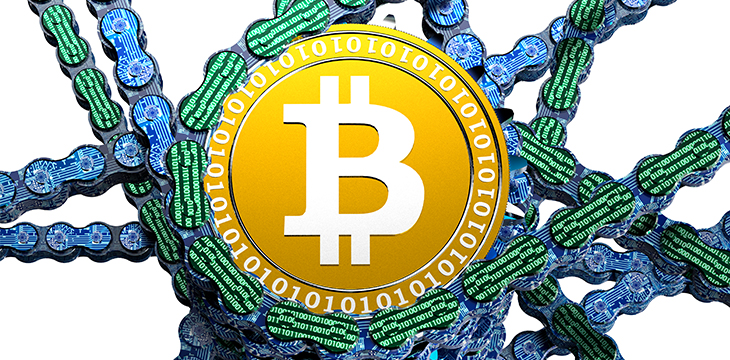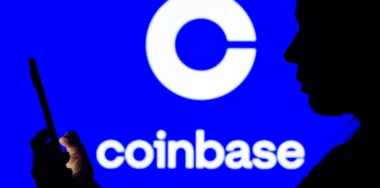It’s more economically viable for people, even if they are dishonest in nature, to start following the rules.
We’ve got electronic transactions without relying on trust. Not because of an anarchist system, but because it’s in the economic and rational interest of each of the nodes not to cheat.
-Dr. Craig S. Wright
The final episode in the ten-video “Theory of Bitcoin: The Bitcoin Whitepaper” series covers the “Calculations” and “Conclusion” sections of the Bitcoin whitepaper, with two main themes emerging: it’s impractical to try to cheat the system, and Bitcoin is first and foremost an economic system—as reflected by Dr. Wright’s two quotes above.
For a more detailed look into the final sections of the whitepaper, I’ve shared my key takeaways from the conversation between Dr. Wright and Ryan X. Charles below.
Only short-term attacks are possible (but still very unlikely)
The Calculations section of the whitepaper explains why its impractical to cheat the system and Dr. Wright points out from the start that only short-term attacks are possible, but still extremely unlikely.
By “short-term,” we mean a malicious node who can do a double spend before anyone notices, obtain the goods and quickly get away. This attack can only be short-term because the chain is public and nodes are not anonymous (more on this later).
Dr. Wright explains that if a malicious node is doing a 51% attack—and doing it for a lot of money—then all the honest nodes will exclude this malicious node because the honest nodes are incentivized to do so. There could be a short window where the malicious node fools some SPV nodes because they will see the longest chain. If the attacker has 51%, the longest chain will appear to be the attacker’s chain, until the police break down the attacker’s door and stop everything that’s happening.
“That will happen in less than 100 blocks, every time,” Dr. Wright confirms.
An attack can only happen against SPV
Dr. Wright also points out that its only possible to do an attack against SPV. He explains that if you’re a merchant and you run a full merchant-type implementation, you’re going to see all of the attack chains anyway. The merchant will see the attacker running lots of hash power and they’ll be able to see double spend attempts. The merchant will have records of all of this, and they will know to stop sales immediately.
“It’s always if you have an SPV chain and the merchant as well or the other participant is on SPV, then someone can send out a false potential chain where you get a different version of a transaction in there,” Dr. Wright explains.
KYC rules apply
Let’s not forget that KYC rules apply to Bitcoin transactions and once you get past a certain amount of money, there are KYC rules. Therefore, things like double spends and alternate chains only apply to small, instantaneous transactions.
Think of a snack machine. An attacker would have to focus on something that works like a snack machine where you can’t take the goods back, something where the transaction is instant. An attacker can forget getting away with something expensive like a car because if you buy an item over US$500, for example, you’re not completing that sale in seconds. There are KYC rules to abide by.
Dr. Wright points out that if we’re talking about transferring multiple millions of dollars, as you would to buy a house, there is no possibility of a double spend attack. By law, with this type of large transaction, you have a window of 48 hours where you can renege, for example.
Nodes are not anonymous
“You’re known and you’re not hidden…nodes de-anonymize themselves and that’s the whole purpose of POW, to make sure that you can’t hide,” says Dr. Wright.
He goes on to comment on the “anonymity” mindset that others in the digital currency and blockchain space are touting, a version of the world where the law doesn’t apply. Dr. Wright says this is not how the world works. It’s an alternate reality. It’s not how merchants work. It’s not within the law. “It’s a completely asinine concept…its childish,” he says.
Attacks on Bitcoin would only be on money the attacker spent prior to the attack, not an attack on someone else’s money. In other words, it’s an attacker double spending their own payments. This is what the attacker would be limited to, and they would be exposing their malicious behavior because of the nodes’ non-anonymous nature.
“Only the nodes can defraud you and its public and anyone can audit it. So how do you keep the nodes honest? Well, everyone can watch,” Dr. Wright adds.
An attack is never a good investment
The math and calculations cited in the whitepaper provide proof that an attack is never a good investment for a malicious node. It would be incredibly difficult to pull off an attack for all of the reasons listed above. It’s simply a waste of time and money.
It would cost a lot of money to attack, while also putting at risk your infrastructure—potentially billions of dollars’ worth of investment could get taken. “It’s more economically viable for people even if they are dishonest in nature to start following the rules,” Dr. Wright explains.
Conclusion
Upon reaching the final section of the Charles and Dr. Wright Bitcoin Whitepaper line-by-line, there are five main points highlighted by the pair and we’ll start with Dr. Wright’s answer when Charles asks him to define Bitcoin.
What is Bitcoin?
“First of all, we’ve got electronic transactions without relying on trust. Not because of an anarchist system, but because it’s in the economic and rational interest of each of the nodes not to cheat,” he says.
He points out that nodes are instantly auditable—evidence is provided and they can’t change that evidence.
Bitcoin is a public system
Double spending has been the big problem with digital currencies in the past and Bitcoin stops this problem by making everything public.
Bitcoin is a peer to peer network not of every user, but of nodes where they distribute and anyone can view all of the history of transactions. These transactions are public and computationally impractical to change.
Bitcoin is an economic system
Bitcoin is an economic system because of how its incentivized. Miners don’t cheat because it doesn’t make economic sense.
“Bitcoin first and foremost is an economic system that uses cryptographic algorithms,” summarizes Charles.
Bitcoin is a simplistic system
Dr. Wright points out that Bitcoin is a simplistic system and miners are a “small world” network. In all ways, the system is just simple. The entire network. The network is not 17 layers, there are not too many hops, the nodes work with very little coordination and therefore the system works better.
Dr. Wright uses a jar of marbles analogy here—if people independently guess the number of marbles in a jar, the median of their answers is more accurate than if they all coordinated and submitted one guess together.
“There’s no need to pre-plan any of this, no need to say this is how you connect, they don’t need to identify their next hop, miners will go out there and it’s in their economic interest to connect to the other miners in the most efficient manner,” Dr. Wright explains.
Bitcoin’s protocol is set in stone
Bitcoin’s protocol was always meant to be set in stone. Everything is automated. Nodes run the protocol and the magic happens. Nodes don’t vote on the protocol rules as they are already determined, rules such as what are valid scripts, the structure of a transaction, etc. What nodes are voting on is, “I’ve got this block first and therefore I’m building on that one.”
Before closing out, Dr. Wright emphasizes that “protocol always includes law” and that Bitcoin is not encrypted—it is purely a ledger where the history cannot be changed. You can make an amendment, but you can’t delete something or change its history and the ledger is publicly viewable, for all to see.
Final thoughts
After finishing this Theory of Bitcoin series, I can’t stress enough that even just reading the Bitcoin Whitepaper (which will take much less time than watching these videos!) will open your eyes to what Bitcoin was born to be, so much more than a store of value. Simply stated, Bitcoin is the innovation of a lifetime.
New to blockchain? Check out CoinGeek’s Blockchain for Beginners section, the ultimate resource guide to learn more about blockchain technology.









